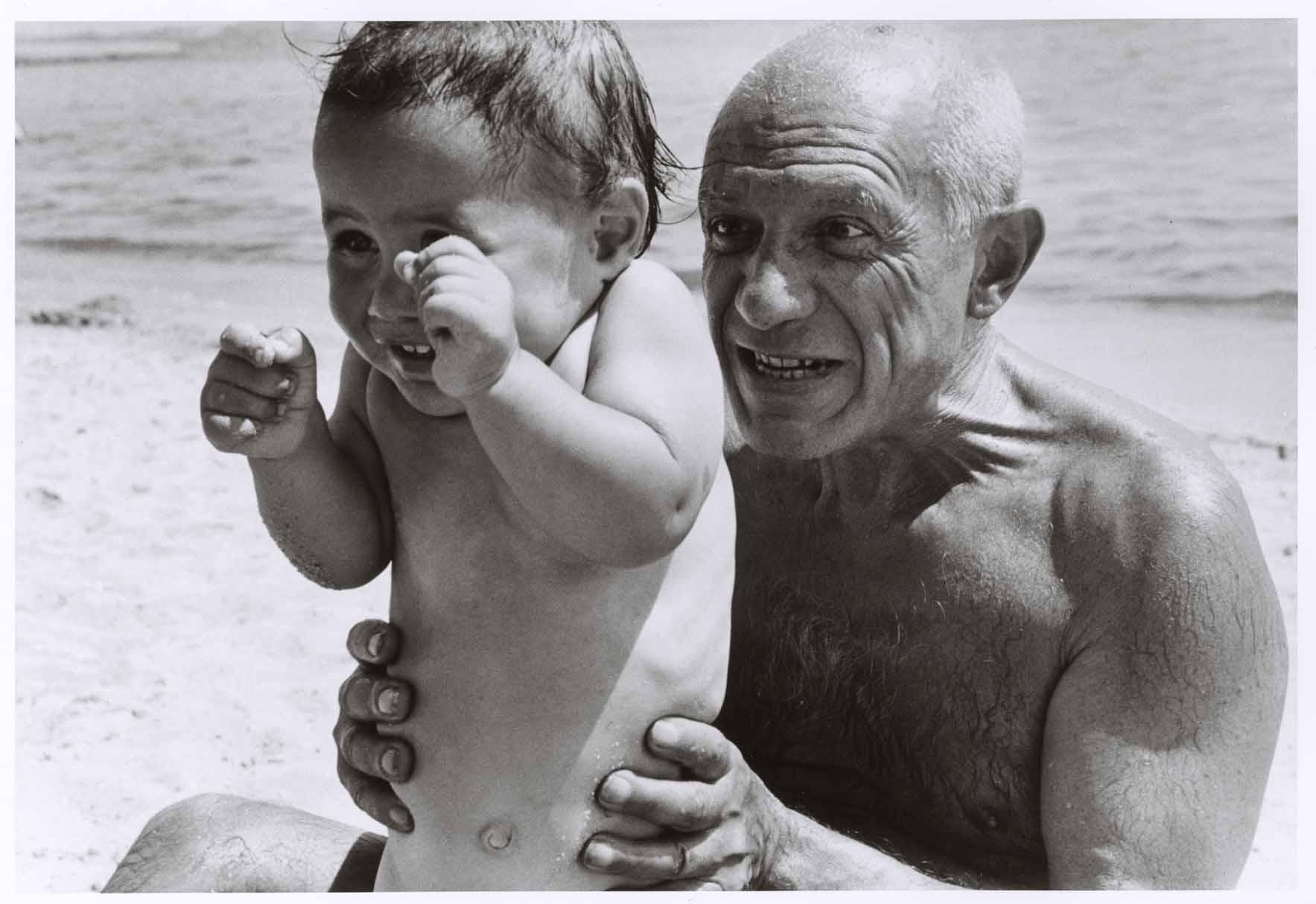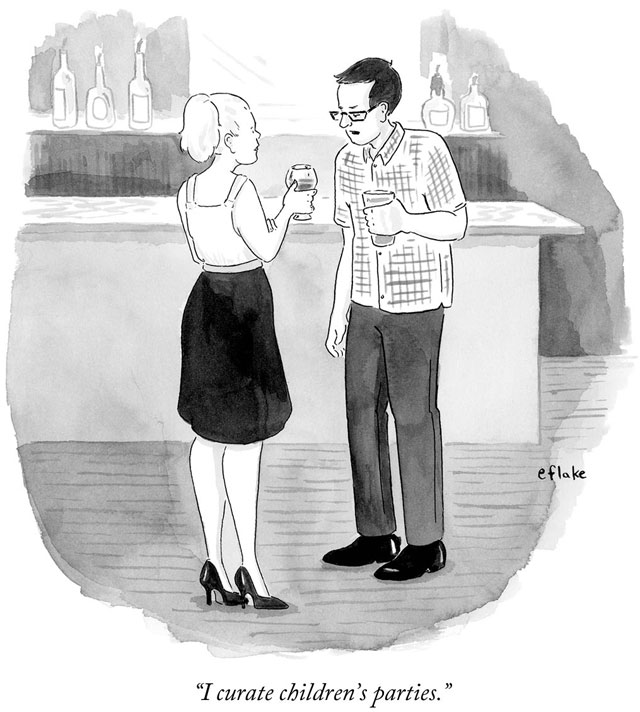Happy National Scrabble Day! David Bukszpan, author of Is That a Word?, wrote this poem to help us remember all 101 105 two-letter words that you can use in Scrabble.
The most important lesson for aspiring Scrabble nerds
is to memorize the whole list of two-letter words.
There’s one hundred and one, just like the Dalmatians,
but instead of pooches they’re pronouns, prepositions, exclamations.
And rather than skinning these pups, Ã la Cruella de Vil,
you’ll play with them daily—it’s your opponents you’ll kill.
Some of these words are obvious, others uncanny
But master them all and you just might beat Granny.
AA, pronounced “ah-aah,†is cindery lava,
the word’s from Hawaii but you may find some in Java.
An AB is a muscle found on magazine covers,
an AD in the mag says Virginia’s For Lovers.
AE thing is one thing, the word’s oldish and Scottish;
AG means agriculture, the word’s academic and oddish.
AH expresses surprise, like “Ah, look at those!”
an AI is a sloth who’s just got three toes.
AL is not just Pacino, it’s an East Indian tree,
and AM is not just talk-radio, it’s a form of “to be.”
AN is an indefinite article, I just said it twice,
and AR is the letter that starts the word “rice.”
When you use an example, you can use the word AS,
and AT tells you where, such as “At Alcatraz.”
We make the sound AW when we see kittens sneeze,
or when lumberjacks insensitively AX stately trees.
AY one might say, to say “I agree.”
BA is the Ancient Egyptian idea of the soul, basically.
To BE is to exist, to have actuality;
a BI is a guy or girl with bisexuality.
BO is a pal, like “Meet my bo, Jackson.”
“BY the way,” one might say, “he’s looking for action.”
DE, from the French, means “of” as in “from;”
DO, like the deer, is the first tone you hum.
ED is education, it’s just shorter this way,
And EF is for F, like “What the ef word did you just play?”
EH…it’s like…I don’t know…like an expression of doubt?
The EL train (think el tren elevado) is a pain to wait for when it’s raining out.
EM refers to the letter; the same goes for EN.
ER is…hesitation; use ES to start “sen.” (A former Japanese currency.)
ET is a past tense of to eat; the letter EX marks the spot.
FA is also sung as part of the scale. (Some folks think it’s “far” but it’s not.)
The Hebrew letter FE (“fayâ€) was long ago used by Moses.
As GO is a word referring to the game, so its plural gos is.
“HA!” blurted Adam, earlier in the Bible, when HE saw Eve evolve from his rib,
“HI,” she replied, then “HM,” because she couldn’t ad lib.
“HO!†Adam said, easy—it can be another sound of surprise—
and Adam’s ID fought his ego. (The superego decides.)
IF, IN, IS and IT we pretty well know
But how about for sweetheart the endearing term JO?
Then there’s a couple kay words that can keep back a conniption,
the first one is KA: the spiritual self—like ba, it’s ancient Egyptian.
The other is KI—pronounced “cheeâ€â€”is a deep concept, son,
referring to the Chinese vital life force—way before Obi Wan.
LA, a note to follow sol
LI, about five hundred yards
That, LO—attention!—will bring us up to MA, a mom, a female mom,
ME, a name a I call myself…
But in the song of course MI also a note meant.
Use “MM†to assent; and a MO is a moment.
The Greek letter MU, MY friend, should NA (not) be unknown to us,
At least compared to El Greco’s real name—NE Dominikos Theotokópulos.
NO, the Greek letter NU should likewise not be a shock,
Unlike the word coined by the German Baron Dr. Carl von Reichenbach,
who came up with OD, a hypothetical life force,
which he derived from the god Odin—who of course was Norse.
From that same part of the world, not far from the Highlands,
we get the word OE, a whirlwind off OF the Faroe Islands.
“OH,†you cry, “OI, my brain is starting to swell!â€
But relax, my friend, take heart, you’re doing so well,
try saying an OM to help counter confusion,
for ON we go to OP, abstract art based on illusion.
OR think also of OS, another word that might be new to us,
it could refer to a bone, or an orifice of the uterus.
You might exclaim, “OW!” if like an OX,
you stub your big toe, wearing just sox.
“OY,” you might cry, “come help me, PA!”
(Which reminds me to warn you not to try to play “da.”)
PE, like fe, is another Hebrew letter,
tho Greek and math people prefer their PI better.
QI, Scrabble’s most popular word, is just ki spelled with a kue,
and like qat (or your cat) it doesn’t need U.
Back to the Von Trapps, let’s not forget the tone RE,
and don’t SH them yet—they have more to say:
there’s also SI and SO from the scale diatonic,
and don’t say TA, or thanks, to them yet, for their lesson harmonic
because we likewise have to make time for TI,
TO which the music teacher Sarah Ann Glover changed the tone si.
UH, UM…oh yeah, there’s UN,
Juste comme the French, it simply means one.
There’s UP and US, and UT—an old name for the first (and last) tone, do,
and WE (the funnest pronoun) and WO, which is woe.
With the Greek letter, XI, we’re near the end of our song.
The Viet coin, XU, was a cent to their dong.
Congrats: YA got all the words that I wanted to teach YE
And—YO! —I almost forgot: there’s ZA, which is pizza!
So now you know your Scrabblish AA, BO, QIS,
next time won’t you sing with MI?
The Official Scrabble Players Dictionary Fifth Edition has added some new two letter words since this poem was first published at The Daily Beast way back in 2003. I have created the following addition to modernize David’s poem.
Since time has passed, Scramble has changed its ways
and you will come to find out DA is a safe word to play.
GA is the white robe worn while performing martial arts.
TE sounds like TI, the seventh note if you’re smart.
PO is a chamber pot, a safe place to pee in.
And now that you know this, more Scrabble you should win.


